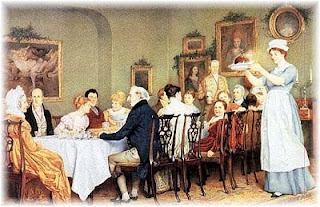This fall, I’m getting back into writing after a nearly two year gap due to my husband’s stroke. It has been a rough reentry, but I’m feeling happy and productive again. I’m also thinking a lot about writer’s block, because things that helped me get over it before have helped me again this fall.
Let me clarify what I mean by writer’s block. I’m not talking about what happens with people who have been members of a writing organization for years and still haven’t completed and submitted a manuscript. That is writer’s block, but not a sort I feel qualified to write about.
Professional writers (regardless of publication status) learn to show up for work on a regular basis. The beauty of it is that writing begets more writing. You draft a crappy scene in the morning, then you go about your day job or errands and seemingly out of the blue, you get ideas for how to fix that scene and go on to the next. You ask why your hero is a loner and the next morning you wake up knowing.
What is going on is a partnership between your conscious and subconscious minds. It’s not always perfect, of course. Sometimes you need 10-20 minutes of warmup before the writing starts to flow. Sometimes you need to take a break to brainstorm a plot snag or murky character motivation. Sometimes you just have a bad day. These are minor blocks; you develop tricks to get through them. And when it’s going well, it feels great. Like an athlete who is in the zone, you are still working and sweating, but the work feels good and productive.
The writer’s block I’m talking happens when you are showing up for work but the ideas slow down or stop coming. At first you may think it’s just a bad day. But it happens again, over a period of weeks or even months. Your characters no longer feel real. They’re more like mannequins you laboriously push through their paces. You lose your gut feel for what works. You don’t know what to keep, change or cut.
What’s happened is like an athletic injury. Unlike a swollen ankle, you can’t see it. But it’s real. Your subconscious mind is on strike.
If you keep going, in a deadline crunch or just out of perseverance, you’re like an athlete compounding an injury. You start to associate writing with pain. You may have trouble finishing a book or starting the next one. It hurts like being at outs with your best friend. You may fall into depression and bad habits.
You could give up or wait it out, but I think it’s better to treat it as a professional athlete would an injury, with rest and therapy. You need to be both kind and tough.
The kind part means getting good sleep, nutrition and exercise if you weren’t already. It could mean massage, meditation, long walks or anything that makes you feel good and clears your mind. You need mental clarity for the tough part.
The tough part is figuring out what caused the block and what to do about it. Some writers say blocks are mysterious but I think one can figure them out. I find journaling (a process I first learned by doing The Artist’s Way by Julia Cameron) helpful. I also talk through blocks with trusted writer friends. Some writers go to a therapist. (I think it’d be very important to find a good one.)
Blocks are caused by fear. It could be fear of rejection, decreasing sales, bad reviews, of not being able to do justice to your ideas, of your friends being jealous if your career progresses faster than theirs. If you fear being punished in some way for writing, your subconscious mind “protects” you by not sending any more ideas.
You can’t just dismiss your fears. Bad things do happen to good writers. You may have to teach yourself that you are strong enough to cope. You may have to work on surrounding yourself with supportive people but also learn to support yourself, too. You may want to change your career plan or writing process. Maybe you need to switch genres. Maybe you need to allow more time for each book.
While you’re doing all this, it’s also a good idea to try what Julia Cameron calls an “Artist Date”. Make time for a fun, creative activity that has no career baggage. It could be something you used to enjoy, or always wanted to try but haven’t had time for. Consider it a peace offering to your creative side.
Once you start back into the writing, be patient. Continue to take care of yourself and trust your gut.
So anyway, this is my theory on writer’s block. What do you think? If you’ve had it, what helped? If you haven’t, do you do things to prevent it?
Elena
 Some of my favorites include the duct tape episodes (they even built a boat out of it) and the one where they (sadly!) proved that Captain Kirk could not have built a bamboo cannon to defeat his Gorn Opponent in the “Arena” episode. Star Trek and black powder—what’s not to love?
Some of my favorites include the duct tape episodes (they even built a boat out of it) and the one where they (sadly!) proved that Captain Kirk could not have built a bamboo cannon to defeat his Gorn Opponent in the “Arena” episode. Star Trek and black powder—what’s not to love?
 Mythbusters has boards on www.discovery.com where one can submit new myths. In the historical myths section, I found someone has posted something similar related to the American Civil War, so I added this Napoleonic bit to that thread. It would be fun to see this one tested!
Mythbusters has boards on www.discovery.com where one can submit new myths. In the historical myths section, I found someone has posted something similar related to the American Civil War, so I added this Napoleonic bit to that thread. It would be fun to see this one tested!




